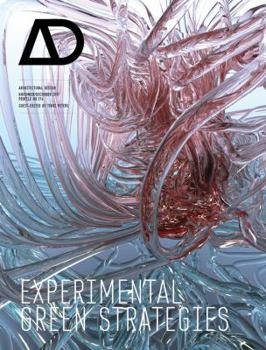Experimental Green Strategies: Redefining Ecological Design Research
(Part of the Architectural Design Series)
Experimental Green Strategies: Redefining Ecological Design Research Guest-edited by Terri Peters
Sustainable design and ecological building are the most significant global challenges for the design profession. To meet new building regulations and national targets for carbon emissions, all future buildings will be judged on their 'green' merits. For architects to maintain a competitive edge in a global market, innovation is now key; the design of new processes, technologies and materials that combat carbon emissions and improve the sustainable performance of buildings are paramount. Contemporary practices have responded by setting up multi- disciplinary internal research and development teams, with offices such as Foster + Partners, HOK and Aedas setting the bar for ground-breaking research and development. The aim of internal groups is often to adapt and create new technologies and materials and to borrow ways of working from other disciplines, to focus on innovation rather than incrementally increasing performance or efficiency. This title offers insights into how a wide range of established and emerging practices are rising to meet these challenges. In pursuit of integrated sustainability and low-energy building, material and formal innovation and new tools and technologies, it illustrates that the future of architecture is evolving in an exchange of ideas across disciplines. Incorporating the creation of new knowledge about ecological building within the profession, it also identifies the emergence of a collective will to seek out new routes that build in harmony with the environment.
Related Subjects
Architecture




